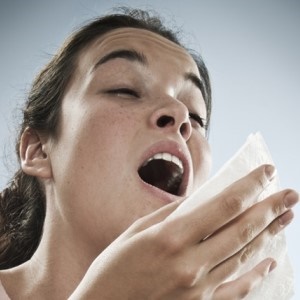
According to the American Lung Association, in the US colds account for more visits to the doctor than any other condition, and on average adults get two to four colds a year.
Many theories
Colds are very contagious and are mostly spread when small drops of fluid are inhaled or transferred by touch, and altogether there are more than 200 viruses that can cause symptoms like coughing, sneezing and a runny nose.
Flu shots have been available for a long time, but as yet there are no vaccinations to protect us against the common cold.
Read: Who should be vaccinated against flu?
Colds (and flu) are strongly associated with winter. There are many theories why this is the case, and one example is that it is easier for people to infect each other in winter because they spend more time indoors, at closer proximity to each other.
Many experts agree that colds are more common during the colder months because the virus is able to spread more easily in cold, dry air.
There has been some research in this regard, and a recent study on mice by the Yale University School of Medicine indicates that the body’s defence against the rhinovirus (a common cold virus that causes about 50% of colds) is not as efficient at cooler temperatures.
If you have a cold, bear in mind that taking antibiotics, which fight bacterial diseases and not the viruses that cause colds, will not help.
But what about summer colds?
Although colds are strongly associated with autumn and winter, people are affected by exactly the same viruses in spring and summer, and colds actually aren’t that rare during the warmer months. After all, viruses are the cause of colds, not the weather – and cold viruses are always around.
There is however a different kind of virus that produces cold-like symptoms and tends to rear its ugly head during the summer months. It is called enterovirus and can cause more complicated symptoms than the typical winter cold, says Dr Bruce Hirsch, attending physician for infectious diseases at North Shore University Hospital in Manhasset, New York.
According to Merck Manual, symptoms of a summer cold caused by enterovirus include fever, headache, and sore throat, and sometimes mouth sores or a rash. Diagnosis is based on symptoms and on examination of the mouth and skin. Treatment is aimed at relieving symptoms.
Polio is also caused by enteroviruses, but these specific enteroviruses have largely been eliminated from Western countries by vaccination.
Read: Enterovirus sickens hundreds of kids in US
Like rhinovirus, enterovirus is spread by coughing and sneezing. It can also spread through the faecal-to-oral route and cause more complicated symptoms like fever, diarrhoea and rashes. Fifty percent of people who get infected with an enterovirus show no symptoms at all, but in America enteroviruses cause around 10 to 15 million illnesses every year.
Hirsch adds that whereas winter colds tend to run their course relatively quickly, summer colds tend to be more difficult to get rid of.
How to avoid getting a cold
Basically there are two ways to avoid getting a cold. One is to avoid coming into contact with the offending organisms and the other is to keep your immune system strong, enabling it to fight off the onslaught of cold viruses.
Centres for Disease Control and Prevention (CDC) suggests these precautions in order to avoid contact with cold/flu viruses:
- Don’t get too close to people who are coughing and sneezing – and keep your distance from other people when you have a cold.
- Cover your mouth and nose when you are coughing and sneezing.
- Wash your hands with soap and water or an alcohol-based hand rub, especially after touching communal surfaces like doorknobs and hand rails.
- Avoid touching your eyes, nose or mouth to avoid transferring germs.
- Clean and disinfect frequently touched surfaces at home, work or school, especially when people are ill.
Dr Arien van der Merwe, Health24’s natural health expert suggests the following steps to strengthen your immune system:
- Increase your intake of the antioxidants vitamin C, vitamin A, beta and mixed carotenes, vitamin E and selenium.
- Eat lots of fresh fruit and vegetables and drink a glass of freshly squeezed orange juice every day.
- Take an antioxidant food supplement combination throughout winter.
- Control your stress levels with daily relaxation techniques.
- Do regular moderate exercise, but listen to your body and take a break when you're feeling under the weather.
- Herbs like Echinacea, garlic, chickweed, liqourice root and golden seal are excellent immune system boosters. Ginseng improves general immunity against infections and, as an adaptogen, also supports the body during stressful times. Regular use of ginseng seems to prevent colds and flu.
Colds more common than thought
Natural relief from spring colds
References:
Smithsonian.com: There is a Scientific Reason that Cold Weather Could cause Colds. http://www.smithsonianmag.com/smart-news/there-scientific-reason-cold-weather-could-cause-colds-180953817/?no-ist
WebMD: Why Are Colds More Likely in Winter? http://www.webmd.com/cold-and-flu/news/20150106/researchers-probe-why-colds-are-more-likely-in-winter
NIH: Catching a Cold When It is Warm. https://newsinhealth.nih.gov/issue/jun2012/feature2




 Publications
Publications
 Partners
Partners















